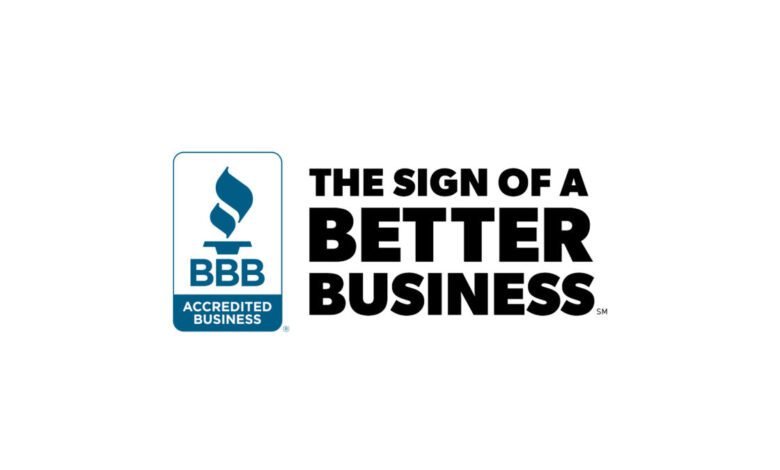What do you need to know

With a legacy spanning over 100 years, the Better Business Bureau (BBB) is the body responsible for evaluating businesses and charities. The nonprofit maintains a huge database of accredited and non-accredited companies, providing rankings based on a variety of factors. The goal is to give consumers an objective resource to evaluate a company’s reputation and, hopefully, avoid bad ones.
When researching an organization or service, you’ve probably seen the BBB seal on a company’s website or in advertising. Companies seek BBB certification because it is a simple and important way to signal to consumers that they are trustworthy. It’s an even better sign if the company maintains a good rating with the organization.
But what happens in BBB ratings? And how does the organization handle customer complaints? Here’s everything you need to know.
What is BBB accreditation?
A BBB-accredited business agrees to meet a set of accreditation standards that the BBB says are “attributes of a better business.” These include honesty in advertising, transparency and responsiveness to complaints, among others. Accredited companies must maintain these standards or risk losing accreditation. To police this, the BBB requires businesses to promptly respond to questions and provide documentation when necessary, especially when a review is triggered through complaints.
In addition to meeting BBB standards, businesses must pay a fee to become accredited. This rate varies depending on company size and geographic location, so it is not the same flat rate for all organizations. The fees are then used to fund BBB operations.
How are BBB letter grades determined?
Both accredited and non-accredited businesses listed by the BBB can have ratings. To maintain accreditation, companies must maintain a rating of B or higher. Seven main factors influence rating scores, each adding or subtracting points from a 100-point scale mapped to letter grades, according to the BBB rating overview. These factors include:
-
Business Complaint History with BBB
-
Type of business
-
Time in business
-
Transparent business practices
-
Not honoring commitments with the BBB
-
Licensing and government actions known to BBB
-
Advertising Issues Known to the BBB
Perhaps the most important factor in a BBB rating is how a company handles complaints, with an emphasis on responding to them promptly, Melanie McGovern, director of public relations and social media at the International Association of Better Business Bureaus (IABBB), told Yahoo. Local. IABBB is a networking hub for BBBs in the US and Canada.
“If a company responds or resolves complaints, the letter grade remains the same because they are maintaining BBB standards for response, which is the number one standard for trust,” McGovern told us. “Ultimately, we seek this resolution for the consumer and the company.”
When comparing companies with different ratings, it’s important to read the complaints listed on the company’s BBB profile, McGovern said. “Often when a grade drops it is because of the volume of complaints. [consumers] review the complaints and see if and how the company responded.”
The number of complaints needed to trigger a rating change depends on the size of the company. “If it’s a national company that has 50 complaints, that’s not as much of an alarm bell as a small local company that has 50 complaints,” McGovern said.
How are BBB complaints handled?
For accredited businesses, each complaint begins a process through which the BBB acts as a mediator between the business and the consumer. Typically, McGovern said, the process can take up to 30 days and is handled by a BBB person at all times.
“There are 94 best business agencies [BBBs] throughout North America, and each of these BBBs has a team of people who work only on complaints, so a human is always interacting with the complaint and the company to ensure [it’s] going in a timely manner,” McGovern said. “If we continue to receive the same complaint about a company from multiple consumers, then we will look into the company [and] I will send them correspondence asking them to clarify the pattern.”
If a company doesn’t clarify a pattern of complaints, the BBB downgrades the company’s letter or places customized language on its profile to alert the public to the potential problem, McGovern said.
Complaints remain on the company profile for three years. If resolved, they will be marked as such, but will not be removed until the three years are up. This allows customers to see how a company has responded to past complaints, without punishing a company that may have undergone major changes since older complaints were filed.
“You could have an experiment with a company in 2019, and that company could have all new managers, all new workers, and clean up its profile in that time,” McGovern added. “Therefore, it is always important to check our website for the most current information.”
Do customer reviews affect BBB ratings?
BBB profiles may include customer reviews. These review ratings are five stars and are separate from BBB letter grades and certifications. This means you might find a company with three out of five stars among reviews but an A+ rating. That’s intentional, McGovern said.
“If you look at the overview of ratings and how the elements work together, a customer review is a customer’s opinion of their interaction with a company; it’s not based on any fact,” McGovern explained. “So it’s because it’s an opinion and it’s not taken into account in the company’s letter grade.”
The BBB says it goes above and beyond many other review sites to ensure its reviews are genuine. The organization does not allow anonymous reviews, for example, and requires reviewers to confirm their email addresses, phone numbers, and names. It then verifies the interaction that occurred with the appropriate company and allows them to respond. Reviewers can continue to submit comments on their reviews.
Is it bad if a company is not BBB accredited?
No. Companies that choose not to pay for accreditation are no worse than those that do, and it is not a perfect system. However, the BBB acts as a neutral third party to help resolve issues with accredited businesses and hold them accountable for disputes.
Why should you care about BBB certification?
Ultimately, BBB accreditation means that a company is held to a different standard than non-accredited companies.
“[Consumers] should be concerned because it means the company has taken the extra step to show consumers that it is a trustworthy company,” McGovern said.
BBB accreditation is just one thing to consider when researching organizations. Referrals from friends and family still generate a lot of business for companies of all sizes for a reason and can be an important component in choosing the right company for you. Additionally, consider reviews and recommendations from multiple sources before making a final decision.
More moving articles from Yahoo Local




